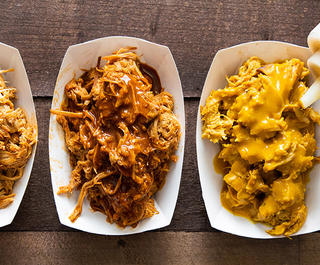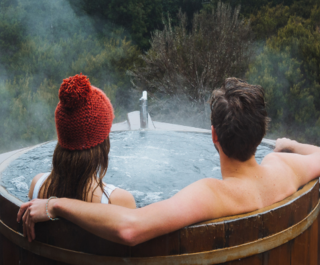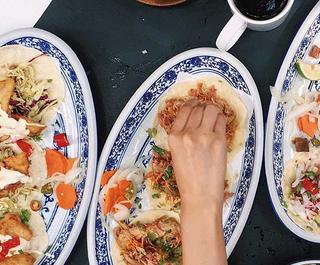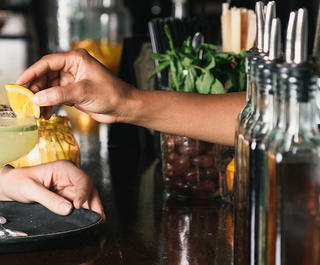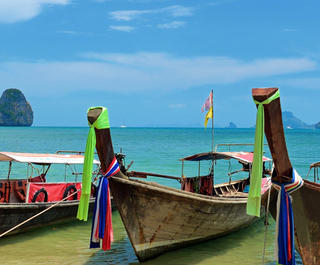
Tucked away in Lima’s historic artist district of Barranco, coffee roasting house Tostaduria Bisetti is something of an institution. Its origins tell a story of coffee that combines Italian nous and Peruvian quality.
The original was established in 1958 by Italian descendant Romulo Bisetti, who wanted to share great Peruvian coffee at a time when it did not receive much interest in Peru. Now his great grandson David has turned Bisetti into one of the leading gourmet brands of coffee in Peru, operating Tostaduria Bisetti, as well as Arabica Espresso Bar in Miraflores. David works with local farmers to improve the quality of their beans and the international prices they command.
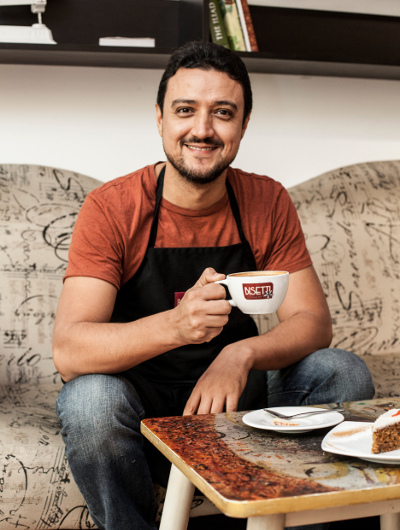 Peruvian coffee expert David Bisetti. Picture: Jimena Agois S
Peruvian coffee expert David Bisetti. Picture: Jimena Agois S
“Sadly, most of the great Peruvian coffee goes straight out for export,” he says. “Coffee corporations and organisations here are not so familiar with the idea of selling this high-profile coffee in the local market. We always try to convince them otherwise. … We never ask for a special price, since we are always ready to pay whatever their American or German clients pay, and we have now developed some great relationships with local suppliers, which allow us to use only the highest quality beans for our coffee needs.”
Here the acclaimed coffee connoisseur shares his thoughts on coffee and Peru.
Does your entire family have a passion for coffee or just you and your great grandfather Romulo?
Although my grandfather was the roaster, it was my grandmother, and after her my mother, who passed the love for coffee on to me. On the days I´d stay at grandma’s when I was four or five, she used to serve me coffee with milk for breakfast. As the Italian descendent that she was, she would accompany that with bread and mortadella.
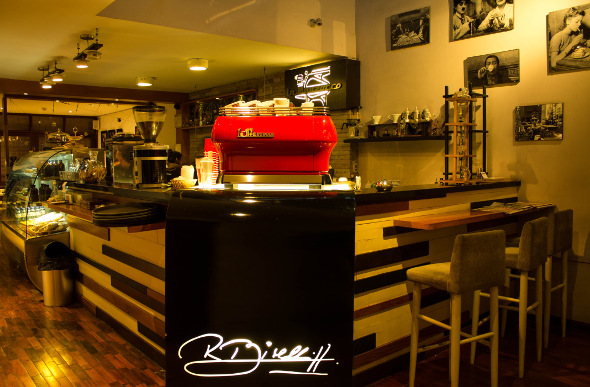 Cafe Bisetti is the spot for a great Peruvian coffee. Picture: Oscar Fernandez Davila
Cafe Bisetti is the spot for a great Peruvian coffee. Picture: Oscar Fernandez Davila
When did you first discover your love for coffee and a desire to take over the Bisetti business?
My love for the beverage is as old as I am but it wasn’t until my wife, Hannah, and I graduated from college that we decided to create a space devoted to specialty coffee in Lima. This is how we started working on the idea of setting up an espresso bar, around nine years ago.
What defines quality coffee?
It is all about the caring and understanding of the quality chain – coffee from seed to cup. Quality however, does not lie on one single link of the value chain.
You may have an amazing coffee from a good origin but if you don’t roast it properly or if you brew it in a careless way, the final drink will not offer all its potential. Quite the opposite, it will mislead the consumer to believe that the cheap or poor quality of the drink relates to a bad origin.
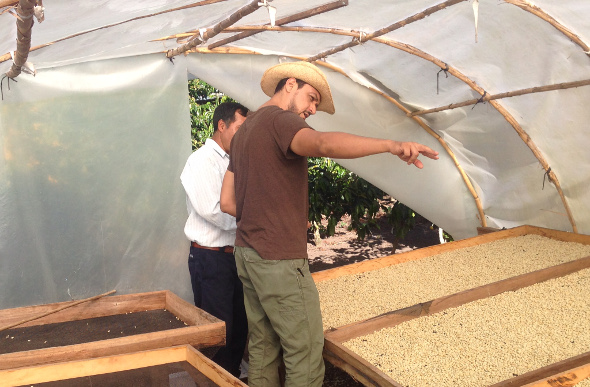 Bisetti works closely with farmers. Picture: David Bisetti Team
Bisetti works closely with farmers. Picture: David Bisetti Team
Where would you recommend in Lima for an excellent brew?
I am happy to see how Lima has finally developed a consistently growing coffee culture. There are quite a few options around the city already and I’d go from the oldest to the youngest.
Cafe Verde, in the district of Miraflores, has always been a top-quality coffee shop. Also in Miraflores, Arabica Espresso Bar is devoted to serving the best espresso possible. It is the one I love, as it was my first shop. Both Cafe Verde and Arabica Espresso Bar opened over eight years ago with in-house roasting operations, and have witnessed the development of Peruvian coffee culture in the recent years.
Tostaduria Bisetti opened five years ago, which is the local roastery in the Barranco district that brought awareness of this important link in the value chain. Soon after, its best barista sprouted into new and great coffee shops also with in-house roasting: Origen Tostadores de Cafe and The Coffee Road.
Nowadays the list is growing and growing, both in Lima and other cities in Peru, such as Jaen in the north with the APU shop, Moyobamba in San Martin with Aroma Cafe and Bethel Cafe, amongst many others.
Mystical land: Top 5 Activities In Peru's Sacred Valley
Exciting fiestas: 5 Festivals That Will Put Peru On Your Map
Mountain magic: Head Above The Clouds On Peru's Lares Trek
Tell us more about Arabica Espresso & Slow Bar and Tostaduria Bisetti.
Arabica offers its customers the concept of a coffee shop devoted to coffee brewing and some food pairing experiences. We developed this first concept as a way to promote coffee culture amongst locals.
Back in that day and even today, having a cup of coffee required almost forcefully some treat, savoury or sweet, to pair it with. Hannah took over the baking operation and actually made the place worth trying. Her pies and cakes are now part of Arabica’s most important trademarks, alongside our single-origin espresso.
Tostaduria Bisetti was more of a development project. After opening Arabica, the gastronomy wave we were experiencing started to take coffee a bit more seriously.
Fine restaurants and bistros started looking for better beans, so we sought to develop a place where the visitor would not only drink a good cup, but also learn about the production chain. That’s how we also set up Bisetti as a cupping lab and training centre, for helping restaurants and new coffee shop owners to learn more about coffee.
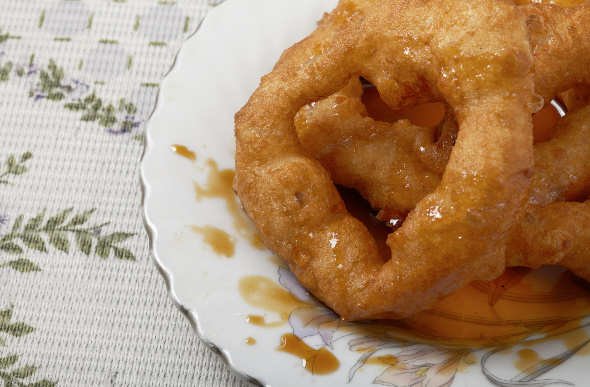 Try Bisetti coffee with traditional Peruvian picarones. Picture: Getty Images
Try Bisetti coffee with traditional Peruvian picarones. Picture: Getty Images
What Peruvian food goes best with your coffee?
I´m inclined to say that some Peruvian desserts are perfect matches for our fruity, citric, and light coffees. However, it is interesting how one of our biggest clients is La Mar, a well-known ceviche place. Depending on the brewing method, I believe our coffees are versatile enough to pair with any food we make.
Your coffee is sold at renowned restaurant Astrid y Gaston – what do you like about the place?
Astrid y Gaston is, of course, a place I always love to dine at. At the end of one of their tasting menus, they included a Chemex service and used beans from a local farmer I work with. That was one of the most sublime tasting experiences I’ve ever had.
What's next for you in the cafe industry and in travel?
At present, we are more and more focusing on and working with small farmers. We want to help strengthen the links in the coffee chain, through technical assessment and also through more research in agricultural practices. We try to see both ends of this industry and therefore bring the best coffee we can to all of our consumers, as well as bringing the best opportunities to our producers.





